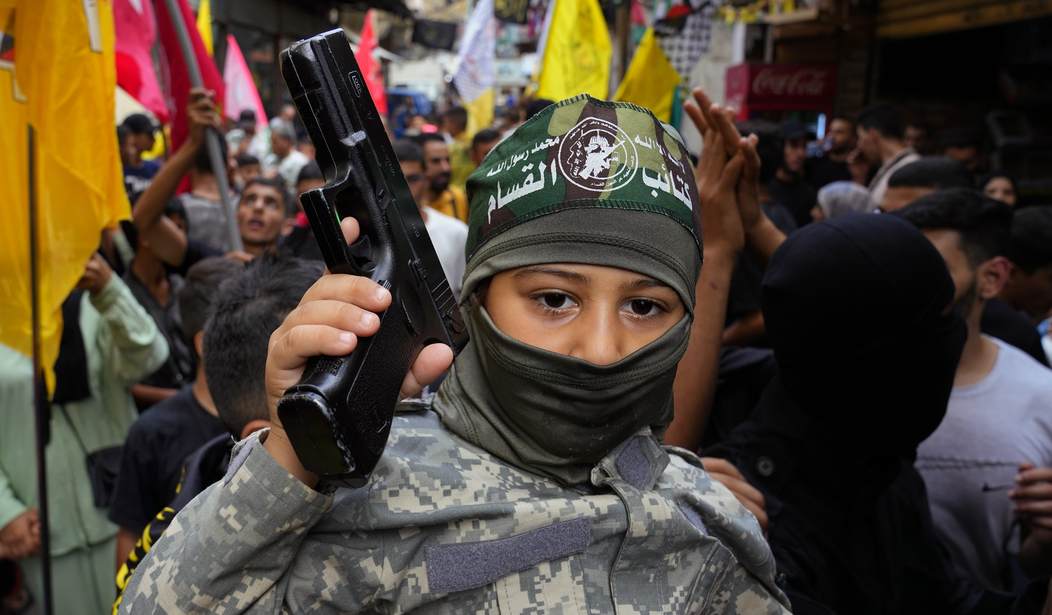They held a funeral in Beirut for a man who died five months ago. Hundreds of thousands of fanatical Shiite Muslims turned out in a show of force to demonstrate that the terrorist/political organization Hezbollah is alive and well.
The event was a "funeral" for Hezbollah's dead leader, Hassan Nasrallah, who was killed in September when Israel discovered his exact whereabouts and dropped 80 bombs on the bunker he was in. His death, along with the famous cell phone/pager attack, the fall of Bashar Assad in Syria, and Israel's devastating bombing campaign against Iran, has made the terrorist group a shadow of its former self.
These events not only weakened the resistance to Israel but shattered the myth of Hezbollah's invincibility. This has set off a chain of events in the Middle East that has altered the political landscape in Lebanon.
Lebanon now has a new president and prime minister who see an opportunity to take Hezbollah down several pegs. President Michel Aoun has vowed to disarm Hezbollah and return the monopoly on military power to the state. The Lebanese cabinet adopted a policy statement saying that the state alone had the right to defend Lebanon’s territory.
The Lebanese "state" is very weak, and the Lebanese army, supplied by the U.S., couldn't last very long against Hezbollah's battle-hardened cadres. But the resistance to Hezbollah from the usually pliant civilian government is welcome. Aoun desperately needs Western aid and knows that appearing to stand up to Hezbollah will unlock emergency relief for Lebanon's prostrate economy.
Nasrallah's funeral was supposed to initiate a "new era" for Hezbollah as it seeks to regain the political power and influence it lost during the war.
Mohanad Hage Ali, a senior fellow at the Carnegie Middle East Center in Beirut, sees Nasrallah's funeral as a way for Hezbollah to mobilize support.
“The funeral is a launchpad,” said Ali. “They are trying to reinvent themselves” and use the memory of Nasrallah “as a mobilizing tool to rally people around their cause, which has taken a great hit.”
Aoun and the new prime minister, Nawaf Salam, did not attend the funeral; they sent representatives instead.
Israel didn't attend the funeral either, but they sent their own "representatives." Israeli fighter jets roared over Beirut during the event as a reminder of how Nasrallah met his end and the consequences of trying to destroy the state of Israel. Israel's defense minister, Israel Katz, said the jets were meant to send a "clear message" that “anyone who threatens to destroy Israel and attacks Israel — this will be their end.”
The group now faces difficult questions from its supporters about whether it can provide the billions of dollars needed to rebuild towns and villages flattened in the war.
That support will be critical to reviving the group’s support among followers whose faith in Hezbollah has been tested by this war. After its last war with Israel, in 2006, Hezbollah responded immediately with cash handouts bankrolled by Iran. But its response has been slower this time around.
The group’s main land bridge for receiving cash from Iran through Syria was severed after the Assad dictatorship — an important ally to Iran and Hezbollah — was toppled by rebels in December.
More than ever, Hezbollah must rely on Iran for funding. But the rickety Iranian economy is almost as bad off as Lebanon's. Still, Iran made a brave show, sending dozens of top officials from the government and the Iranian Revolutionary Guard Corps (IRGC).
Iranian Foreign Minister Abbas Araqchi and Parliament Speaker Mohammad Baqer Ghalibaf head the list of dignitaries. Also in attendance was a Who's Who of Middle Eastern Shiite terrorists, including members of Iraq's Shiite militias, Hashd al-Shaabi, or what is known as the Popular Mobilization Units, and the Islamic Resistance in Iraq.
It's difficult to say who needs who more: Iran needing Hezbollah as a symbol of power and prestige or Hezbollah needing Iranian cash and backing from the IRGC. This is the moment that the non-Hezbollah politicians in Lebanon can wrest power and influence from the terrorists if they're bold enough and brave enough.
That remains to be seen.










